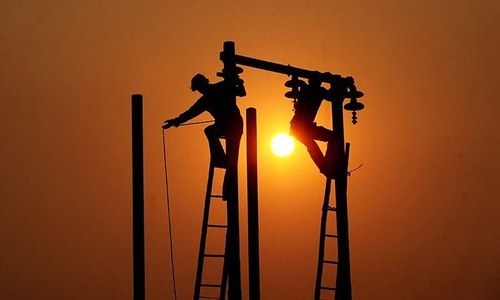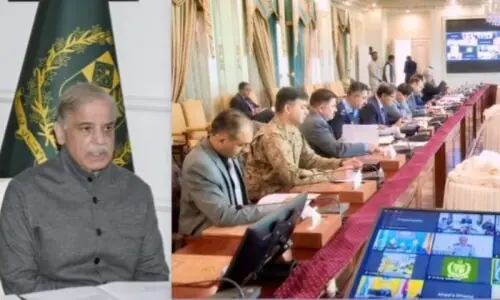ISLAMABAD: Pakistan plans to borrow another 200 billion rupees ($1.44bn) to help clear power sector debt destabilising the finances of the government and private power producers, a senior official tasked with energy reforms said.
Pakistan’s economy and society have been racked by a decade of chronic electricity shortages which have crippled its manufacturing sector and stoked voter anger in the South Asian nation of 208 million people.
Electricity shortages have erased in the last 12 months but years of mismanagement and funding shortfalls for subsidies have led to accumulated power sector payment arrears, or “circular debt”, soaring to 1.4 trillion rupees ($10.1bn).
Independent power producers (IPPs) angry with late government payments have warned they face a financial crisis, while economists fear rising circular debt will further widen Pakistan’s yawning fiscal deficit, a key part of ongoing bailout talks with the International Monetary Fund.
Pakistan earlier this month raised 200bn rupees through an Islamic bond to ease financial crunch in its power sector, but critics say much more needs to be done.
Nadeem Babar, head of the Task Force on Energy Reforms created by new Prime Minister Imran Khan, told Reuters the government plans to ease financial pressures on power generation companies by taking another 200bn rupee loan by April.
“That total of 400bn will not bring the outstanding amount down to zero, but it will pay it down substantially to a point where no generator will be at risk of shutting down or having liquidity issues,” Babar told Reuters on Thursday.
The loans are a key part of the government’s strategy to rethink how it deals with power arrears and will give the government breathing room to enact wide-ranging reforms, Babar added.
He said Khan’s government is looking to save money by moving power sector arrears from the balance sheet of the IPPs on to the balance sheet of government-owned distribution companies.
Under Pakistan’s power purchasing system, IPPs bill the government monthly for the power they produce, but when the government fails to pay up, power generators take commercial bank loans to stay afloat and the government is hit with financial penalties for late payments.
“In the past, to keep debt off the government’s power companies’ balance sheet, the government has allowed a run up of the same debt on IPP balance sheets - but at what cost?,” said Babar, who is currently writing Pakistan’s 25-year future energy policy.
“The finance minister has understood and agreed that it is nonsensical that we are paying about three per cent higher interest rate to keep this debt off our balance sheet when we acknowledge that it is our debt,” said Babar.
Pakistan hiked electricity prices in January and the new tariff, set to gradually increase over the next two-and-half years, will drastically slow the accumulation of circular debt and will eventually help eradicate it, Babar said.
Transmission losses and theft are also being aggressively targeted by the government, he added.
Published in Dawn, February 16th, 2019
































